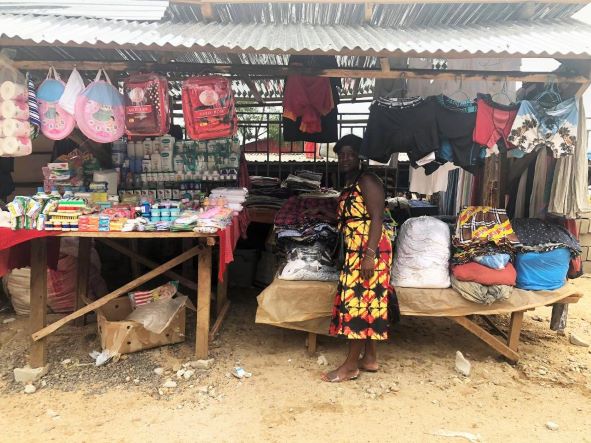Monrovia, Liberia– The Liberia Institute of Statistics and Geo-Information Services (LISGIS) in collaboration with Ministry of Finance and Development Planning, and with support from UNDP, is undertaking a major study on the impacts of COVID-19 on informal businesses, which are the primary source of employment and income for about 80% of Liberians.
A UNDP press release said on Monday, January 17, 2022, that the study will interview between 6,000 and 7,500 households countrywide to establish how COVID-19 has affected their livelihoods and how they have been coping. It will focus on unregistered businesses that employ less than five people. This will better inform policy responses designed to aid business and economic recovery.
“This in-depth survey will enable the government to better understand the impacts of COVID-19 on the largely undocumented informal sector, and to use the data generated to design and implement effective, targeted measures to alleviate the negative impacts of the COVID-19 pandemic on small informal businesses,” said Hon. Samuel D. Tweah, Minister of Finance and Development Planning.
“Informal businesses are the number one source of employment for Liberians, so it is important that we understand what is happening in the sector; we need to know more about their location, operations and activities, the business environment in which they operate, and their contribution to the country’s GDP. This data can demonstrate to the government how vital informal businesses are to the country’s growth and prosperity so that appropriate policies are put in place to support Liberia’s informal economy. This could include providing targeted services to informal businesses to make them robust economic entities,” said Stephen Rodriques, UNDP’s Resident Representative in Liberia.
About 60 enumerators have been trained since mid-December, and each will visit and interview people in 120 households in 10 counties where most of the country’s informal businesses are concentrated – Bong, Gbarpolu, Grand Bassa, Grand Gedeh, Lofa, Margibi, Montserrado, Nimba, Rivergee and Sinoe.
The enumerators will administer the survey questionnaire digitally enabling faster analysis of the data collected.

